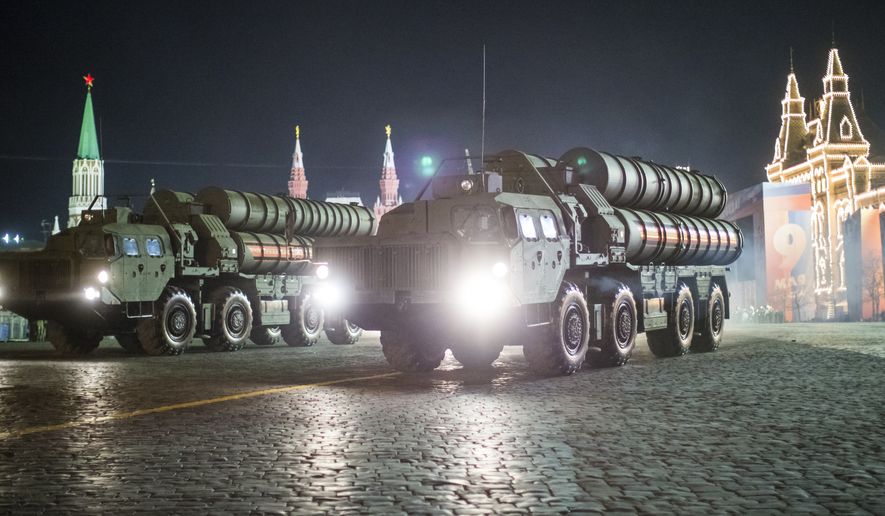Indian defense officials have agreed to purchase several Russian-built S-400 advanced missile defense system, becoming the latest U.S. ally to buy top-tier weapon systems from Moscow.
Members of India’s Cabinet Committee on Security, chaired by Prime Minister Narendra Modi, gave the green light Friday to the S-400 deal, which will send five missile systems to the Indian military, Defense News reported.
The plan is expected to be formalized during the next round of bilateral talks between Moscow and New Delhi on Oct. 5.
Mr. Modi and Russian President Vladimir Putin put the plan to purchase the Russian missile system in motion last October, during the most recent round of national security talks between the two powers.
Neither U.S. military officials nor diplomats in the region have weighed in on the decision by the central committee, but the decision marks the second time a key U.S. ally in the Middle East and South Asia have agreed to buy and field the Russian weapon system.
Turkey is pressing ahead with its own plans to field the S-400, also known as the by the NATO moniker SA-21 Growler, despite protests from Washington. U.S. lawmakers have already adopted legislation barring Ankara from acquiring the advanced F-35 Joint Strike Fighter, as a result of its military cooperation with Russia.
Since entering the Russian arsenal in 2007, the S-400 Triumf air defense system has quickly assumed the mantle as Moscow’s premier anti-aircraft missile system. Touted as a direct competitor to the American-made PAC-3 Patriot air defense missile system and the Terminal High-Altitude Area Defense or THAAD — the main ballistic missile defense system fielded by U.S. forces — Moscow has recently ramped up its marketing of the weapon to foreign militaries, including those closely allied with Washington.
Moscow has reportedly pitched S-400 sales to China, a near-peer competitor to the U.S. that is actively looking for systems to counter American THAAD deployments on the Korean peninsula — a move Beijing claims is a threat to the country’s ballistic missile defense shield. China is also reportedly eying the S-400 as a deterrence weapon, to curb American and allied efforts to push back against the country’s aggressive actions in the South China Sea.
But it is the geopolitical ramifications of expanded S-400 sales to key American allies across the globe has stoked concern among top U.S. diplomats. Among the plethora of Russian-made advanced weapons systems Moscow is seeking to flood the world stage with, the S-400 “is the one we are most concerned about,” Andrea Thompson, Undersecretary of State for Arms Control and International Security, told reporters earlier this month.
• Carlo Muñoz can be reached at cmunoz@washingtontimes.com.




Please read our comment policy before commenting.